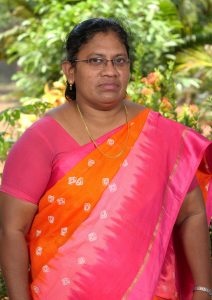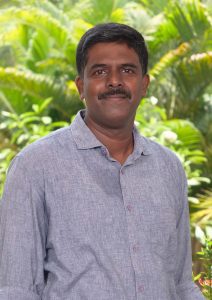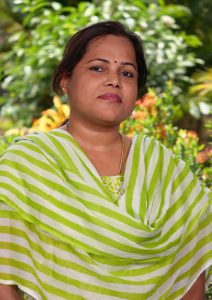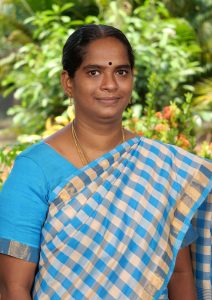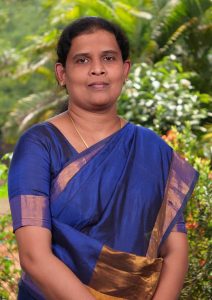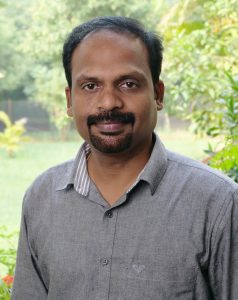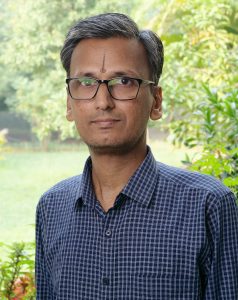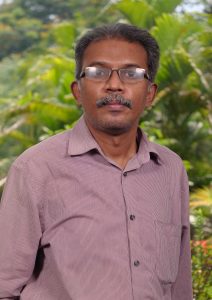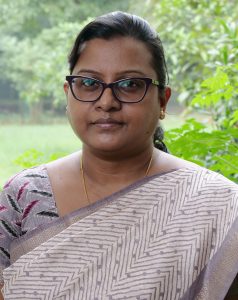Scope of the Subject
Microbiological research is one of the forefront areas as of date with enormous funding available throughout the globe in the areas of medicine, agriculture and environment. Therefore, ample research opportunities are available in many national and international research laboratories. Similarly, career opportunities are also aplenty for Microbiology graduates/post-graduates in many core areas such as pharmaceutical & nutraceutical sectors, hospitals, analytical laboratories, fermentation industries, food and dairy industries, catering industries, flight catering, confectioneries, bioenergy sector, etc., and in allied areas such as clinical research, pharmacovigilance, energy and environment auditing, food auditing, content writing, online teaching, etc. Bioentrepreneurship is another exciting opportunity, which is the need of the hour.
Course Description
The undergraduate/postgraduate programmes are designed in such a manner that students are exposed to both basic and applied concepts of the subject. The modern subject areas of molecular biology, rDNA technology, immunology, biochemistry and bioinformatics as well as the applied subjects such as industrial biotechnology, food microbiology, medical microbiology, pharmaceutical microbiology and environmental microbiology are offered at both undergraduate and postgraduate levels. Some special subjects such as nanobiotechnology, forensic microbiology, biostatistics and computer applications in biology are included in both undergraduate and postgraduate curricula, and subjects such as research methodology, pharmacovigilance, microalgal biotechnology and IPR are offered at the postgraduate level.
Programme Design
Each year, 50 students are enrolled based on merit to the undergraduate course in microbiology leading to the three-year Bachelor of Science degree. Likewise, there is an intake of 26 students for the two- year Master of Science degree in Applied Microbiology. All the degrees are affiliated to the University of Madras.
Industrial visits/Internships/In-plant trainings
Frequent industrial visits as part of the curricula are arranged for the students to have a glimpse of the role of microbiologists in various production facilities and to learn the nuances of production and quality aspects. Students are also encouraged to undergo summer internships/in-plant trainings/project training in different research laboratories/industries. Postgraduate students are required to carry out a project work and submit the dissertation. Many students present their findings in various national and international scientific journals/conferences. Our students are also regularly selected for summer internships offered by reputed institutions and academies like JNCASR and Indian Academy of Sciences.
Placements
Our students have been placed in reputed companies such as Tata Chemicals Ltd., Sachika, Lifecell, Thomson Reuters, etc. under the campus placements drive, and many students have been placed in various companies through off-campus recruitments. Some of our students have pursued higher studies in universities of national and international repute such as University of Leeds, University of Göttingen, National University of Singapore, Jawaharlal Nehru University, National Institute of Technology, University of Hyderabad, Banaras Hindu University, Pondicherry University, CSIR and ICMR institutions, etc. Many of our alumni are placed in leading MNCs of the food, breweries and pharmaceutical sectors.
Association / Events
Department Association:
The student forum NICHE was formed and inaugurated on the 14th of January, 2003. The objectives of the NICHE are to organise academic and co-curricular programmes. Through the technical forum (NICHE), the department frequently organizes invited lectures from renowned experts and also conducts national/international conferences in different areas of microbiology/biotechnology/life sciences as the annual technical event. The department also encourages many student-centred activities like Post-graduate Journal Club, Environment, Health and Sanitation Club, MAG meet for undergraduate students, and publishing of Department Newsletters.
Environment, Health and Sanitation club (EHS club)
Environment, Health and Sanitation Club was inaugurated during November 2016. Mr. Arun
Krishnamurthy, Environmentalist, declared open the activities of the club.
Vision:
To form and build a departmental club (EHS Club – Environment, Health and Sanitation Club) that
works towards helping in conservation of environment as well as in striving towards creating awareness on
public sanitation and hygiene.
Purpose:
The purpose of the club is to offer opportunities for the students to understand the social needs and
work towards them particularly in relevance to environment conservation, clean up and protection, public
health and sanitation.
Objectives:
Create awareness among specific target groups such as village communities, urban and semi-urban public and school children in the following areas:
o Environment conservation and restoration
o Protection of biodiversity, microbial biodiversity in particular
o Sustainable agriculture with emphasis on organic farming
o Eco-friendly and sustainable technology development
o Environment sanitation and hygiene
o Infectious diseases and public health
Design and execute projects in the above areas.
Collaborate with NGOs/other institutions/industries
Activities of the Club:
The major activities of the club include conducting rallies, awareness campaigns, surveys, exhibitions, lecture series, work camps, clean-up drives, projects and workshops in order to create awareness among the public as well as to involve them. The activities are planned and conducted predominantly at a community level and to a lesser extent as in-campus programmes.
The Post-graduate Journal Club (PG JOURNAL CLUB)
The Post-graduate Journal Club was started during January 2016. The club encourages the students to keep abreast of the current scenarios in global life science/microbiology research. Each post-graduate student presents one latest research/review article in the form of a PowerPoint presentation. The article is summarized and critically analyzed during the presentation. Then the article is discussed by all the participants, which include all the students and staff members of the department. The journal club meeting is held fortnightly, where emphasis is given for knowledge sharing, discussion and analysis. This programme improves the students’ critical reading skills and understanding of the scientific literature. The student community here learn how best to present the research data to an audience.
MAG MEET
Maven is the term given for the experts in a field and to the ones who are trying to learn new things throughout their life. The aim of the MAG meet is to enlighten the students in the field of Microbiology by updating them about the recent and interesting research and facts in microbiology and its related disciplines. It is a platform for the students to share knowledge from the knowns to the unknowns. Innovative presentations from the students are encouraged to make the sessions lively. The MAG meet is conducted twice a month.



